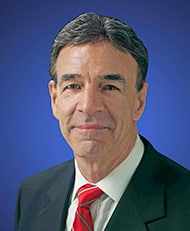
Lost amidst the benefits and drawbacks is the fact that the sharing of information is usually not restricted to
friends and family. Depending on the site and privacy settings, personal posts may be available for anyone to view, thereby opening a world of unanticipated consequences. The consequences of providing personal information that can be seen by virtually anyone who cares to look, range from minor embarrassment to serious safety and security issues.
As with most things, a bit of thought goes a long way to avoiding later regrets. Social media provides a platform for the expression of thoughts, photos and videos on virtually any subject. And the reality of that platform is that some thoughts shouldn’t be expressed – not because of the thought itself, but because of the potential for unanticipated consequences.
Many employers now look at postings on social media as part of the new employee interview process. A person’s Facebook page and Twitter posts therefore become part of pre-employment screening. All posts that are open to public view are available to employers, so viewing them does not require specific permission, nor does it access to password-protected information. Consequently, posting photos of yourself
after having had too much to drink or not enough clothing to wear, can turn an excellent job prospect into a “thanks, but no thanks” letter.
On the one hand, there are people posting photos of themselves in compromised situations, on the other, some people won’t let anyone post a photo of them with an alcoholic drink in their hand. The latter consideration has nothing to do with opinions about the consumption of alcohol, it has everything to do with image and perception. The above referenced person who does not want certain photos posted, is someone I know personally and who enjoys a variety of beverages. His aversion to having a photo posted with a drink in hand is based on his employer’s “preference” with regard to a public image and client perception.
Similarly, posting information about where you’re going, where you are or what you have purchased can have a different form of unanticipated consequence—that of inviting a thief to visit you. Do you really want crooks to know that you’re away from home, or that your children are home alone or that you’re planning to be out of town during a specific time period?
Don’t be lulled into thinking that a post on Facebook that exposes personal information is safe, because your profile doesn’t disclose your address or other information a thief would find useful. All anyone needs is a name and the state in which a person lives (and sometimes not even that) to find current and past addresses, phone numbers, date of birth, place of employment and the names of relatives.
Although there may not be a high incidence of thefts associated with breaking and entering as a result of a social media post, such posts play right nto the hands of identity thieves. A post by itself may not provide all the information necessary to complete an identity theft, but it can be a vital piece of the puzzle.
Beyond safety and security considerations, there’s plain old common sense. I frequently see posts that cause me to wonder, “Why would anyone post that, and why would they think anyone cares?” Obviously, opinions vary considerably as to the appropriateness of social media subject matter, but does anyone really want to read about someone else’s meal and the resulting digestive processes?
Dave Emanuel is Vice President of Random Technologies, a manufacturing company in Loganville, and a Snellville City Councilman. To read more from Dave Emanuel visit http://www.cuttothe-chase.net

